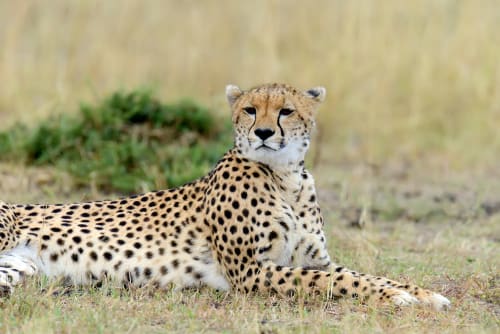Africa is a unique continent full of breathtaking landscapes, fascinating cultures and unparalleled wildlife. A safari in Africa is an unforgettable experience and is on the so-called "bucket list" of many travellers. However, the costs for a safari can quickly skyrocket, which is why many holidaymakers shy away from taking such a trip. In this blog post, we would like to introduce you to the cost factors and show you that a safari does not always have to be expensive. We will also give you tips on how to find the perfect safari experience for your personal budget.
How much does accommodation cost?
Accommodation is usually the most expensive component of a safari, but also the one where you can save the most. Generally, the higher the comfort, the more exclusive the location and the facilities of the accommodation, the more expensive it will be. To give you a complete overview, we have dedicated a separate section to this topic below.
Safari accommodation can be divided into different categories. Basic options include hostels and simple guesthouses, while luxury lodges with private pools, spa areas and gourmet restaurants are the highest standard.
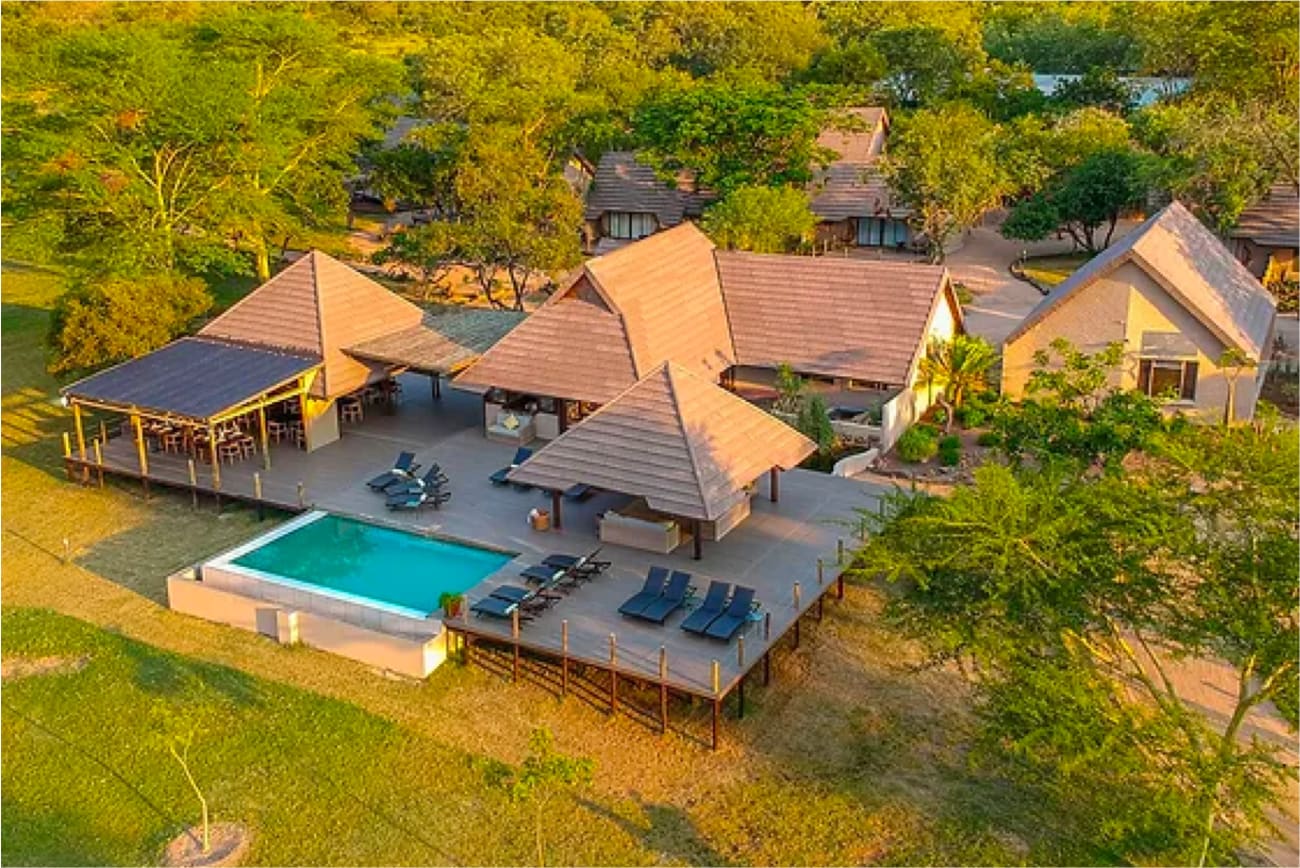
Accommodation location: Inside a reserve
Most accommodation within the reserves and national parks is full board, which means that all meals and in some cases alcoholic drinks are included in the price. In addition, guided game drives - which take place twice a day - are usually already included in the price.
If you choose to stay at a lodge or camp within a reserve, be aware that the more popular destinations often charge higher prices. Reserves such as Kruger National Park in South Africa or Serengeti National Park in Tanzania are very popular due to their impressive wildlife and well-developed tourism industry. Accordingly, prices for accommodation and activities are higher than in less well-known reserves.
If you're looking for a cheaper option, you should also check out lesser-known safari destinations that can often also provide stunning wildlife.

Accommodation location: Outside a reserve
Outside the reserves, the accommodation options are usually much cheaper and the choice is greater. Many accommodations are also located in the immediate vicinity of a reserve gate and often offer guided game drives. If you are travelling by rental car, it is also possible to go on a self-drive safari and explore the reserve on your own.
You can also choose whether you would prefer accommodation that already offers a range of food options or accommodation where you stay overnight and have the opportunity to explore local restaurants - whichever suits your budget and schedule better. To find accommodation close to your destination reserve, simply activate the "Off Reserve" filter on safarica.com and limit the distance of the nearest gate to your desired distance. You'll save money and be close to Africa's amazing wildlife at the same time.
If you are looking for budget safari accommodation, you should search for self-catering options, hostels or guesthouses on safarica.com or safari lodges, narrowing down the price per night.
Dependence on travel time and seasonality

Dry season
The cost of a safari in Africa is also highly dependent on the time of year. The high season for safaris often coincides with the dry season. This varies by country, but it usually falls in the months from June to October. In the dry season, landscapes are often barren and animals congregate around waterholes, making it easier to spot them. The good weather and high animal activity make these months a popular time for safaris. Due to the high demand for safaris, the cost of accommodation, activities and flights can increase significantly during this time.
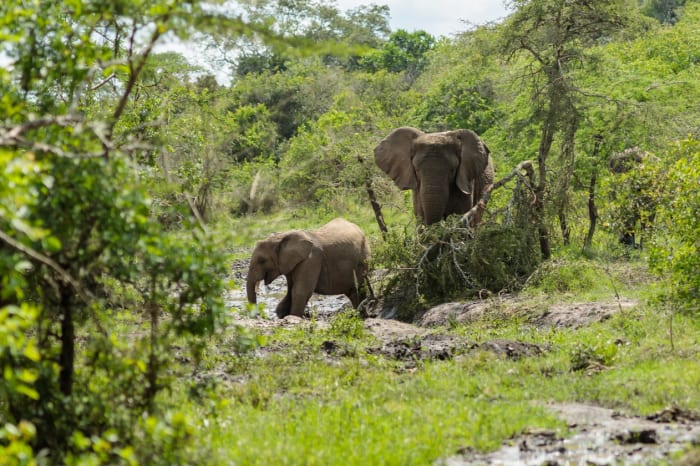
Rainy season
The rainy season, on the other hand, can be considered the low season, as there are fewer tourists and accommodation and activities are offered at a lower price. During the rainy season, the landscape is often green and the vegetation lush. However, this also makes it more difficult to spot animals, as they can hide better in the vegetation. Nevertheless, the rainy season can be a good option for travellers and offers attractions such as young animal observations or the annual migration of millions of migratory birds. By the way, rainy season does not mean that it rains all day, but rather short and heavy.
Dependence on the destination country
The expenses for a safari also depend greatly on the destination country. Some countries in Africa are popular destinations for safaris due to their diverse wildlife and well-developed tourism industry and can be correspondingly more expensive than other countries. For example, countries such as Kenya, Tanzania and Botswana are very popular destinations for a safari holiday as they offer a variety of national parks and reserves with impressive wildlife. Due to the high demand for safaris and the well-developed infrastructure, the costs for accommodation and activities are usually higher in these countries.
Other countries in Africa such as Uganda or Zambia also offer impressive wildlife, but are less crowded and therefore often offer cheaper deals, making them a good option for travellers on a budget.
For better orientation, here is a cost overview for one overnight stay per person within a reserve. Please note that the prices listed in the table are rough estimates and can change constantly:

Other cost factors
Transport
Most safaris start with an international flight to the destination country and often also require domestic flights from the airport to the national park or reserve. The cost of a flight can vary depending on the departure point, airline, season and time of booking. It may be worth booking flights in advance or looking for packages that include transport from the airport to your accommodation.
Alternatively, many accommodations - especially safari lodges - also offer transfers to and from the airport or between different accommodations. For travellers who want to be independent and prefer to experience a self-drive safari, there is the option of booking a rental car on site. Again, costs vary greatly depending on the country, time period and vehicle class. Be sure to include the cost of petrol, insurance and any road tolls.
In general, it is worth booking transport options early and looking for combination deals. Some airlines and car rental companies offer early booking discounts that can result in significant savings. Careful planning of transport can help ensure that you get the best possible safari experience for your budget.
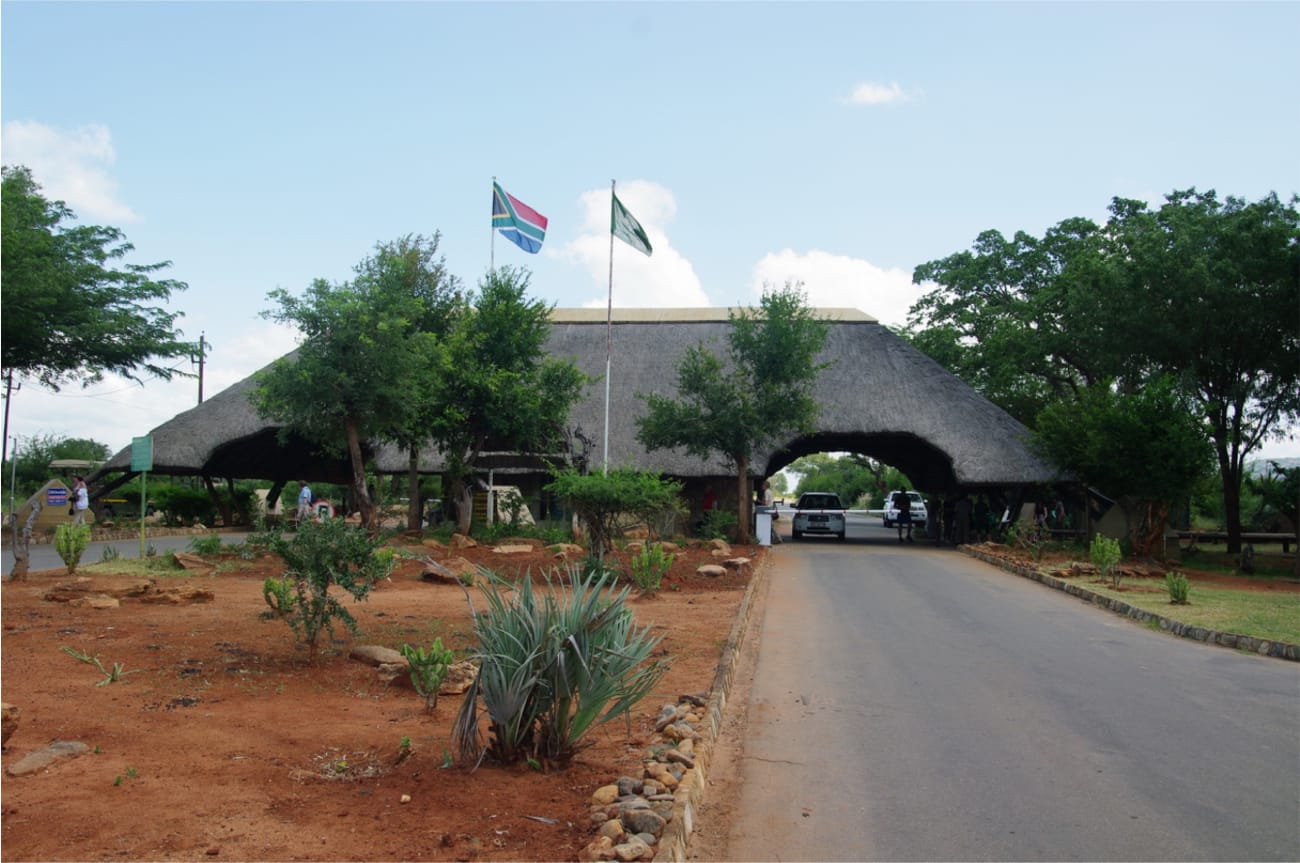
Parking and concession fees
Each national park or wildlife reserve charges an entrance fee, the so-called "conservation fee", to enter the park. The fees are an important contribution to the protection and conservation of nature and wildlife and also serve to promote economic development in the local communities. These fees are often included in the price of safari lodges within a reserve, but are charged separately for accommodation outside a reserve.
As an example, we can look at the park fees for the famous Kruger National Park in South Africa: For international visitors, entry to the park costs 460 Rand (approx. 23 Euros) per person per day. Children pay half, 230 Rand (approx. 12 Euro).
Please note that these figures are for guidance only and may change at any time. Park fees vary from park to park and often change between seasons.
If you plan to spend several days in the same park or reserve, it is worth looking for weekly tickets or similar offers.
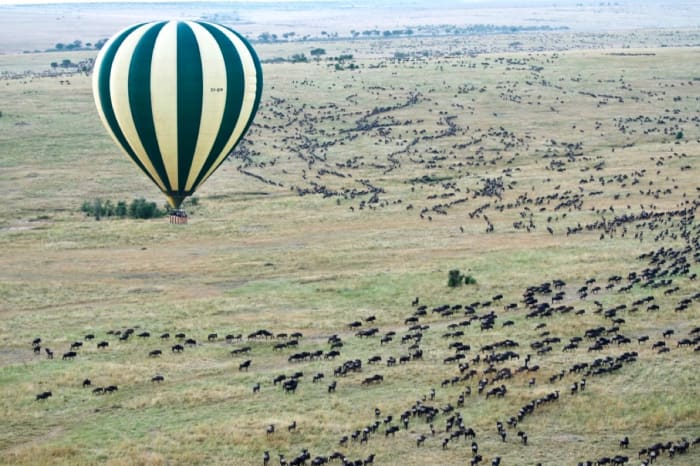
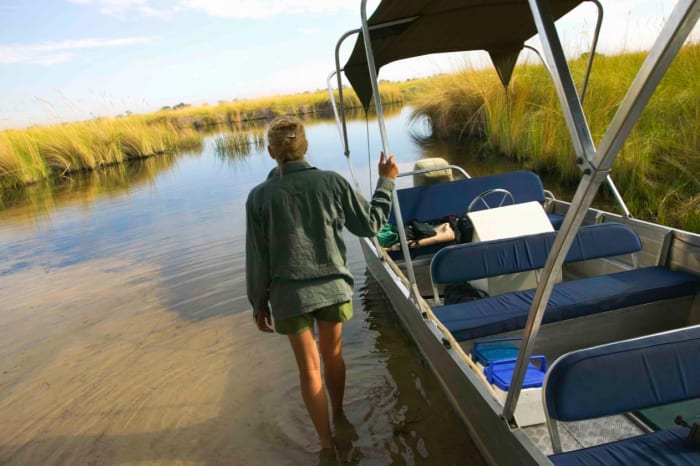
Tour guide and activities
One of the main activities on safari is wildlife viewing. If you choose to stay within the reserve, game viewing is often included in the accommodation price. Lodges and camps usually offer two game drives per day, one in the early morning and one in the late afternoon when the animals are most active. Some lodges and camps also offer special wildlife viewing opportunities such as bush walks and night drives, which may incur additional costs. It is important to clarify these expenses in advance and include them in your budget.
If you want to save money, self-drive safaris are a great option as they only require parking fees and vehicle rental. In addition to the low cost, self-drive safaris give you more flexibility to customise your own itinerary. However, you should have sufficient experience in driving on unpaved roads and in remote areas. Especially during the rainy season, this is an important point to consider.
Apart from wildlife viewing, there are many other activities available during a safari. For example, hot air balloon rides are particularly popular in Tanzania and Botswana and offer spectacular views of the surrounding wildlife and landscape. You should expect to pay around €350-500 per person for this activity.
And of course you also have the option of activities outside the reserves and parks such as beach holidays, golfing, quad biking, culinary excursions or boat trips. You can also find these easily with the unique filter options on safarica.com.
Additional tips to reduce expenses
If you're planning a safari, there are some tips and tricks that can help you keep costs under control and still have a great safari experience.
Early booking discounts and special offers
Many safari accommodations offer early booking discounts and special offers (soon to be available on safarica.com) if you book your safari in advance. Discounts can be up to 50%, so check safarica.com for suitable accommodation in good time.
Group tour
Opting for a group tour can also be a good way to save on safari prices. By sharing resources such as transport, accommodation, car hire and meals, the per person spend can be lower. So take your friends or family and have an unforgettable time on safari in Africa.
Flexibility in travel dates and destinations
If you are flexible with your travel dates and destinations, you can often find better deals. Avoid the high season, as prices are often higher at this time, and look for less popular destinations that often offer lower prices.

Use safarica.com and filter by cost
With safarica.com you can filter by various criteria such as location and type of accommodation or distance to the nearest gate. Simply adjust the filter according to your budget to find the best deals quickly and easily.
Conclusion
There are many factors that influence the cost of a safari holiday, such as the type of accommodation, the time of travel and the destination country. It is important when planning a safari to keep an eye on the budget and consider any additional costs that may be incurred. However, there are many options to reduce costs, such as early booking discounts, group tours and self-drive safaris.
Use safarica.com to find the right offer for your dream safari, whatever your budget.

